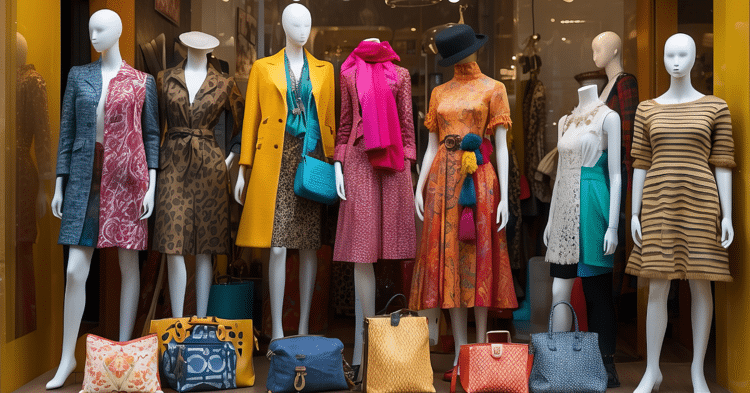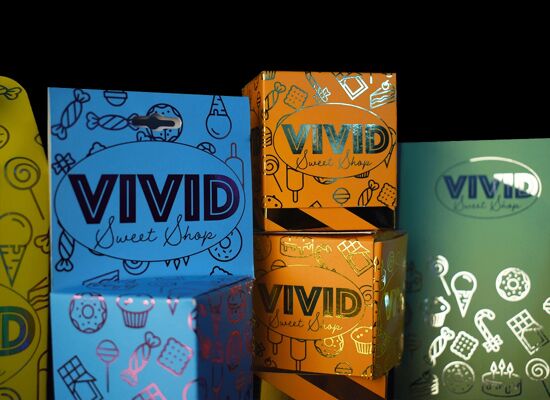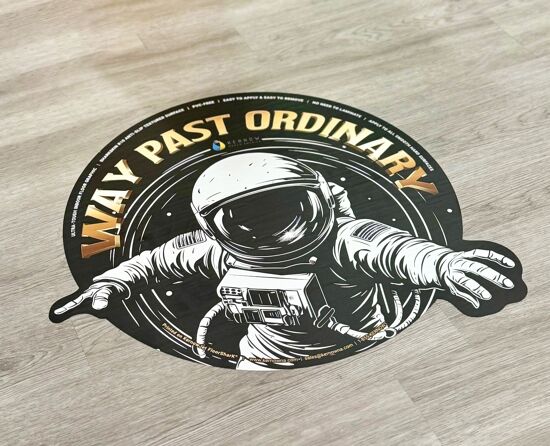Exploring textile printing trends in fashion and decoration

James Gatica shares the latest trends in textile printing regarding both fashion and garment decoration. James discusses the importance of sustainability, the rise of digital textile printing, personalisation and driving innovation and creativity in textile printing.
Textile printing, once confined to a purely functional role, has evolved into a dynamic form of artistic expression, influencing every aspect of our lives. From the catwalks of Milan to the homes of discerning connoisseurs, textiles serve as the canvas for designers to project their visions, filling spaces with personality and charm.
In this era of interconnectedness, the distinction between fashion and decoration is becoming increasingly blurred, creating a new paradigm where creativity is boundless. As we navigate the possibilities, several key trends emerge, shaping the trajectory of textile printing in both fashion and décor.

From the rise of sustainable practices to the dominance of digital innovation, these trends signify a changing paradigm, driven by consumer demand for ethically produced and customisable products. In this article, examples of creativity in garment printing and the future of textile printing will be discussed.
The fusion of fashion and decoration
In recent years, we have observed a fascinating merging between both fashion and interior design. This fusion has blurred the boundaries between apparel and home decor and has fundamentally transformed the landscape of textile printing. Design motifs that once featured in couture runways are now appearing in upholstery fabrics, curtains and even wallpaper, creating a seamless aesthetic that unite personal style and living spaces.

Sustainability as a centrepiece
As environmental awareness continues to influence all aspects of our lives, the textile industry is no exception. Sustainable printing practices, including water-based and eco-friendly pigment inks, are gaining traction in response to consumer demand for ethically produced textiles. Additionally, there is an increasing focus on the use of organic and recycled fabrics, further reinforcing the industry's commitment to eco-consciousness.
Digital domination: the rise of digital textile printing
In an era defined by digital innovation, traditional printing methods are being replaced by the efficiency and versatility of digital textile printing. This transition offers enhanced design flexibility, rapid prototyping and on-demand production, enabling designers to express their creativity without constraints of traditional printing processes.
Additionally, advancements in digital printing technology have significantly improved colour accuracy and print resolution, allowing for precise reproduction of complex designs.
Personalisation is supreme
In a world that celebrates individuality, personalisation has become a key driver of textile printing trends. From personalised clothing to custom-made home furnishings, consumers are increasingly seeking products that reflect their unique tastes and preferences.

This demand for customisation has fuelled the rise of print-on-demand services and bespoke production models, enabling businesses to meet the diverse needs of their customers while minimising waste and inventory costs.
Pushing the limits of creativity
The intersection of technology and textile printing continues to drive innovation and open new horizons for creative expression. From 3D printing textiles to integrating smart textiles with sensors and LED lights, designers are pushing the boundaries of what is possible, transforming textiles into dynamic, interactive media.
These technological advancements not only elevate the aesthetic appeal of fashion and décor, but also give them functional capabilities, ushering in a new era of sensory experiences.

As we navigate the ever-evolving landscape of textile printing, one thing remains clear: the future is full of possibilities. Whether harnessing the power of sustainability, embracing digital innovation, or championing individuality through personalisation, the industry is poised for continued growth and transformation.
By staying attuned to emerging trends and embracing technological advances, printers can find success in this dynamic and stimulating field.
To discover the latest content that covers a wide range of sectors including textile printing and garment printing sign up for FESPA’s free monthly newsletter FESPA World available in English, Spanish and German.
Interested in joining our community?
Enquire today about joining your local FESPA Association or FESPA Direct
Recent news

Adding sparkle to personalised print with special effects
With demand for personalisation on the rise, Rob Fletcher looks at how offering customers the option to add special effects to their printed work can help you win new business and expand into new markets.

Kernow Coatings to showcase innovative solutions at FESPA 2025
Kernow Coatings will showcase innovative, sustainable wide-format printing solutions at FESPA 2025. Highlights include a collaboration with Ricoh for a space-themed booth, featuring KernowJet MetaliK and Interiors Structured Silver. They'll also present recyclable wallcoverings and PVC-free media, emphasizing high-performance, eco-friendly options.

Understanding the differences and similarities between monitor and RBG Device ICC Profiles
Paul Sherfield explores the the intricacies of RGB monitor profiles and RGB device profiles, uncovering the challenges and considerations that we can face in the colour management field face daily.

From Imagination to Fabric: Exploring Generative AI with ROQ and Printbox
ROQ and Printbox's upcoming session at SmartHub Conference at Personalisation Experience will demonstrate real-time AI-powered t-shirt personalisation. Attendees will be able to create designs with AI, printed live on ROQ's DTG printers. This will showcase the power of combining generative AI with on-demand printing, revolutionising customer experience and apparel customisation.